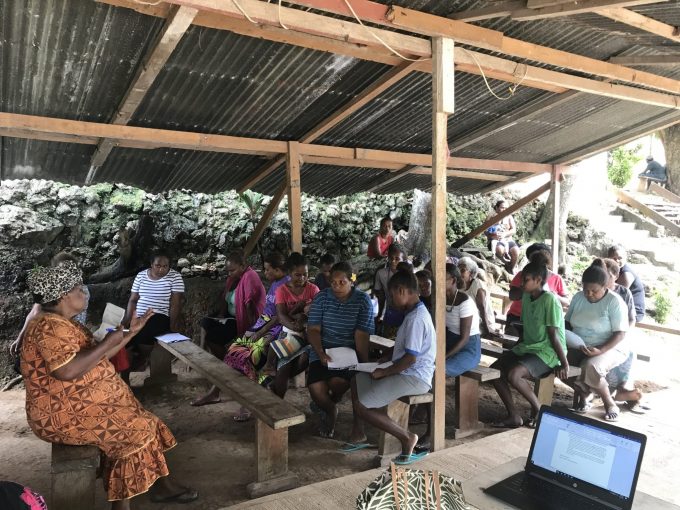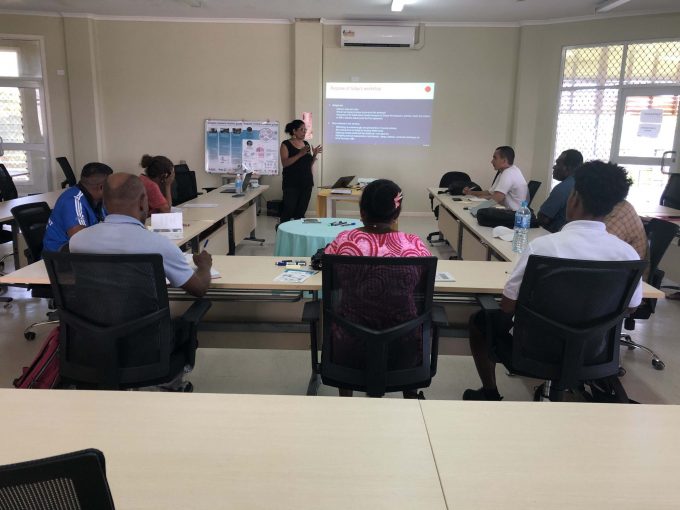The findings from academic research are often not easily accessible to research participants and public audiences. This is problematic in areas like climate change research, where research translation and more widespread dissemination of how best to adapt to climate impacts is vitally important given the scale of challenges being faced, and that those most adversely affected are often vulnerable communities.
Honiara, the capital city of the Solomon Islands, offers a case in point. Residents of the city are at the forefront of current and future climate impacts, yet many people do not read English, let alone have access to scientific reports. A large multidisciplinary team of RMIT researchers, led by Prof Darryn McEvoy, have been working in Honiara since 2014 on varied applied research activities, most recently under the ‘Climate Resilient Honiara’ project, funded by UNFCCC and administered by UN-Habitat. Other recently completed projects include a disaster-resilient shelter guide and understanding of the impacts of climate change on women, urban gardens, and local food security.
To raise awareness about climate risks locally, the RMIT team partnered with Honiara Youth Council to translate the key findings from these two most recent projects. These comics are intended to bridge the research translation gap and to acknowledge the time contributed by local communities through their ongoing engagement with research activities conducted in Honiara by the RMIT team.
“It is important not only to engage with local communities to ensure that climate actions are locally appropriate and equitable, but also to disseminate research findings in ways that are accessible to all,” Prof Darryn McEvoy said.

The comics were drawn by four young local artists with the scripts written in the local Pidgin language. The artists were selected through a competition organised by the RMIT team and creatively supported by Dr Gemma Sou. This research translation activity was partly funded by the Climate Resilient Honiara project and partly by the RMIT Urban Futures Enabling Impact Platform Proof of Concept fund.
One comic focused on translating an inclusive and disaster-resilient shelter (housing) guide for urban informal settlements, based on research funded by Fiji’s Habitat for Humanity.
The research was led by CUR researcher, Dr Mittul Vahanavati, who said, “While the shelter guide provides technical information on housing preparedness and recovery from disasters, the comics are more accessible to local community members, and will be shared locally with women, youth, and people with disability groups”.
A second comic, based on research funded by SPC Pacific Community and led by CUR researcher Dr Serene Ho, illustrates the relationship between women, urban gardens, and local food security.
This research highlighted the role women play in securing food through home gardening, especially important during Covid-19 lockdowns. It also revealed the pressures women and gardens are facing from a changing climate. “Women reported difficulties in passing on customary knowledge and practices related to gardening to their children. We hope that these comics not only show how important women are to local food security, but that the comic helps open up conversations with youth about re-engaging with their customs through gardening,” Dr Ho said.
The comics are freely downloadable:
Disaster resilient housing by Junior T. Abiah.
Disaster resilient housing illustrated by Jackson Diosi.
Urban gardens, climate change, and local food security illustrated by Indie R. Morgan.
Urban gardens, climate change, and local food security illustrated by Casper Hairiu.





